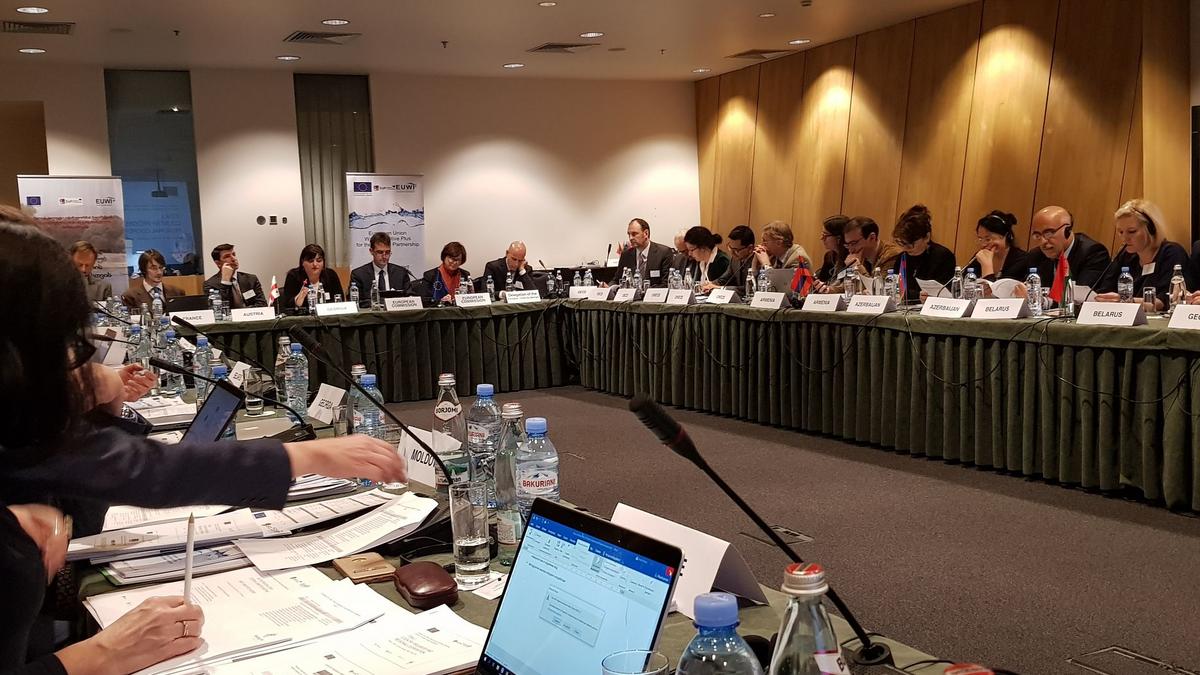Sectors & markets Energies renouvelables - Développement durable - Environnement
European Union Water Initiative Plus for the Eastern Partnership
Meeting on the progress of the water management program in the Eastern Partnership countries.
European Union Water Initiative Plus for the Eastern Partnership
15 November 2018
On November 15, the CCIFG took part in the second steering committe meeting concerning the European Union Water Initiative Plus for the Eastern Partnership. Mr. Eric Tosatti, First Concellor of the French Embassy in Georgia made an introduction speech.
Sum up on the EUWI project:
The program has been launched in 2016 for a duration of 4 years in six partner countries (Armenia, Azerbaijan, Belarus, Georgia, the Republic of Moldova and Ukraine). It aims to align their legislation with the EU policy on water management with a focus on transboundary rivers. The project is implemented by the Organisation for Economic Co-operation and Development, the United Nations Economic Commission for Europe, and an EU Consortium comprising the Austrian Environment Agency and the International Office for Water (France).
The overall budget is of 25 079 212 EUR of which 23 500 000 EUR is from the EU contribution. The budget is equally divided among the countries.
According to the agreement, the implemented partners should complete the activities by September 2020 even if time extension came be needed later.
The second committee was focused on:
- National water legislation
- River basin management planning and implementation
- Role of reliable monitoring data
- Strategies and regulatory framework with Integrated Water Resources Management principles and obligations under the Multilateral Environmental Agreements.
Current analysis of the experts on Georgia:
“Georgia has only partly transposed its water regulation; there is a draft water law, but it is not yet approved. It needs further upgrading of its water quality monitoring network. The National Environmental Agency (NEA) has an adequate laboratory, but the measurements of priority substances and hydrobiological monitoring needs to be improved. The country has not yet joined the UNECE Water Convention and has signed but not implemented the Protocol on Water and Health. Pilot RBM plans are developed now with support of the project, but the responsible agency (NEA) needs strengthening on implementing this task in the future. RBM organisations have not been established yet – pending approval of the new Water Law – and hence RBM is still very central”[1].
[1] ROM report –European Water Initiative Plus for Eastern Partnership (EUWI+4EaP) (2016 share)- p4
Regional cooperation
Results
- Meetings organised between the parties
- Workshops
- Trainings
- Harmonised process between the 6 countries and harmonised data management
- Raise of the awareness (website, communication plan, campaigns,…)
Challenges
- Deepening of the transboundary cooperation
- Ongoing issue of harmonisation in transboundary coordination
- Different national visions and strategies



